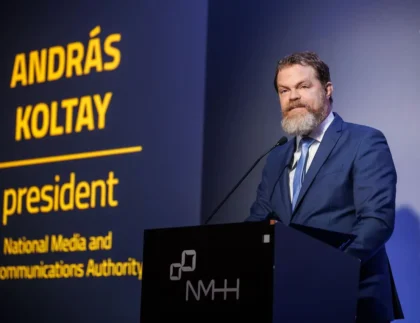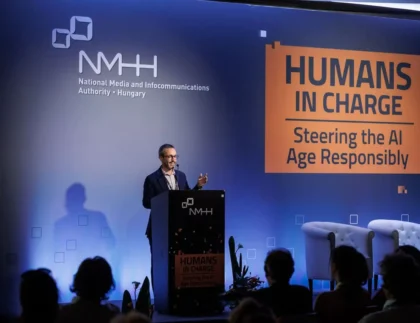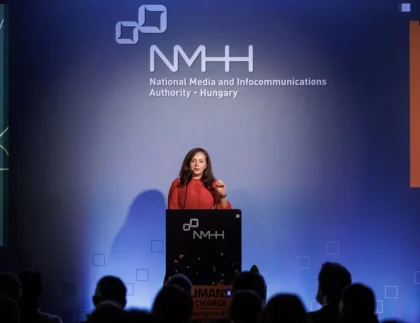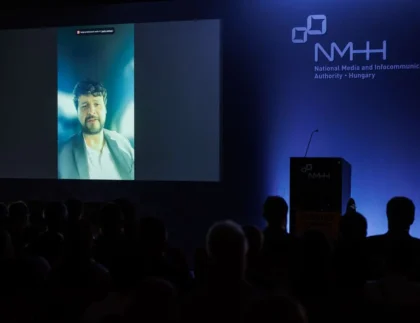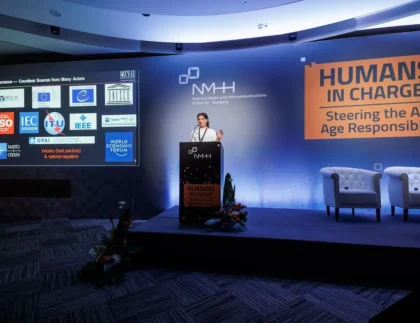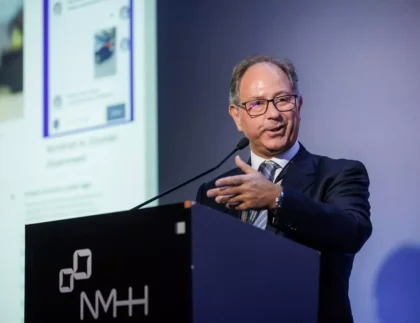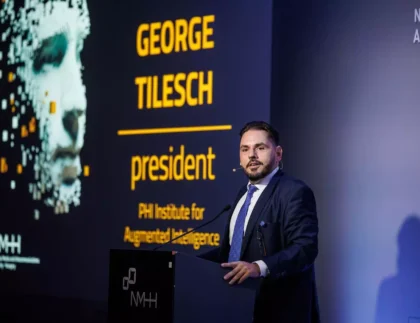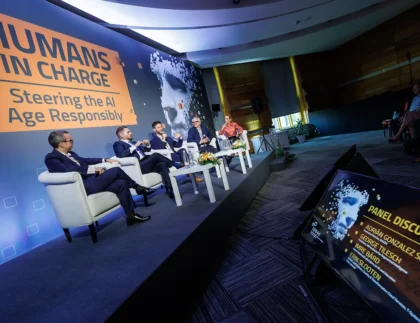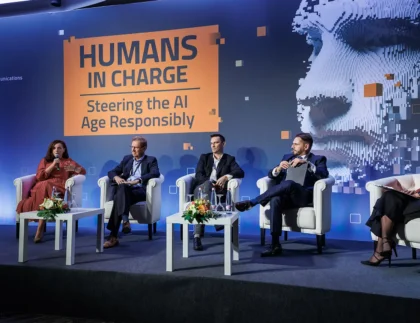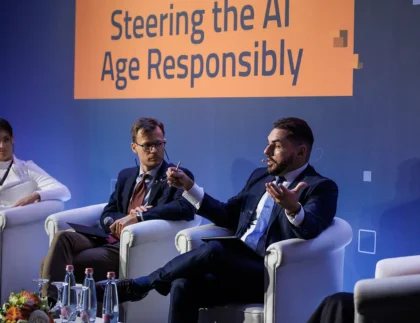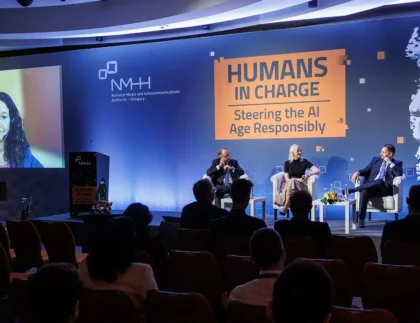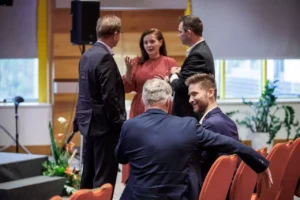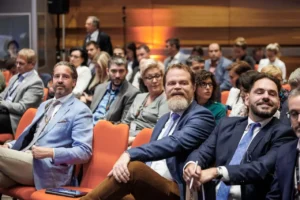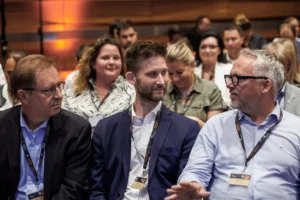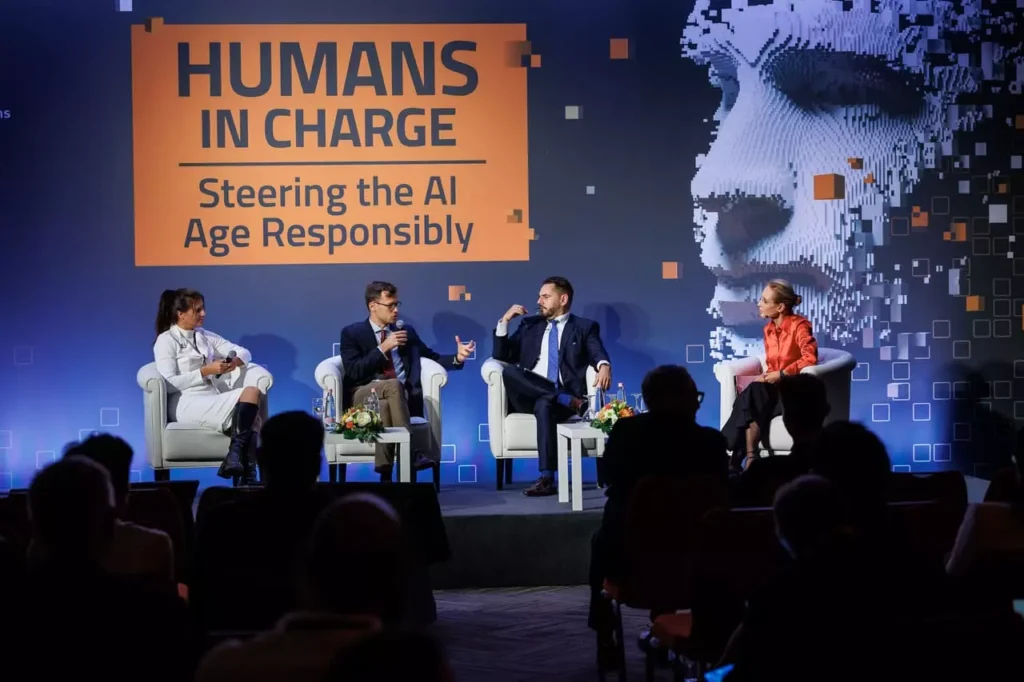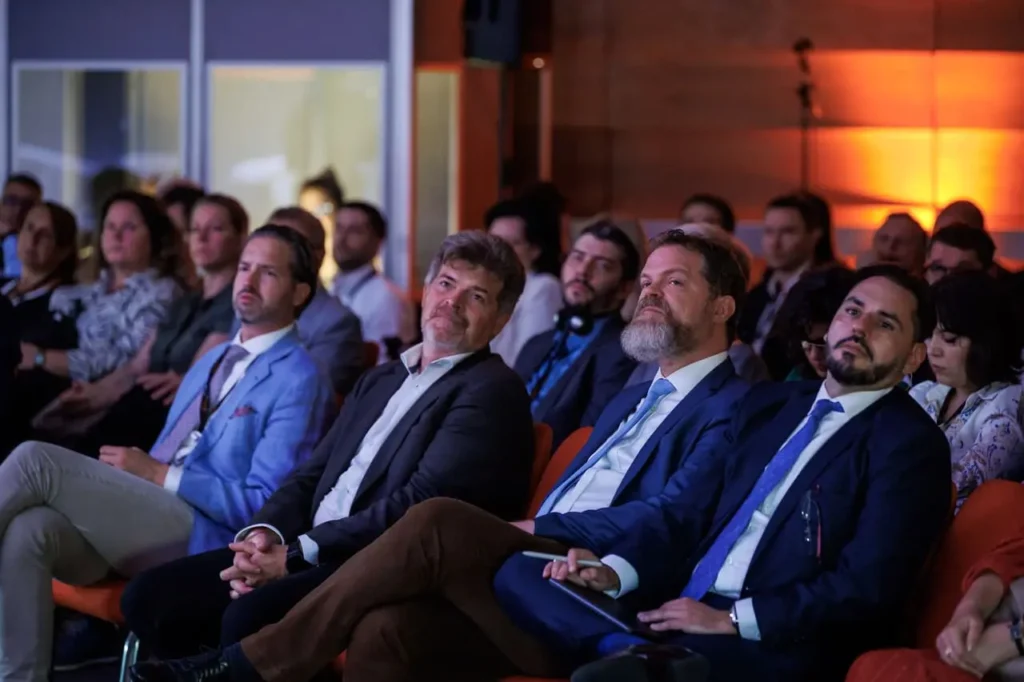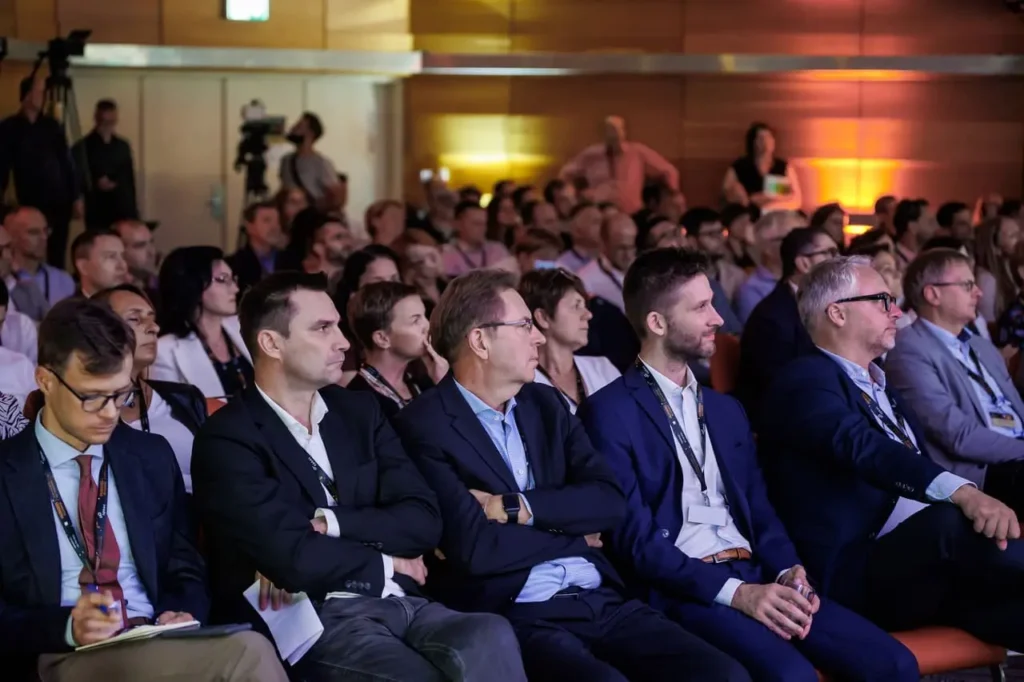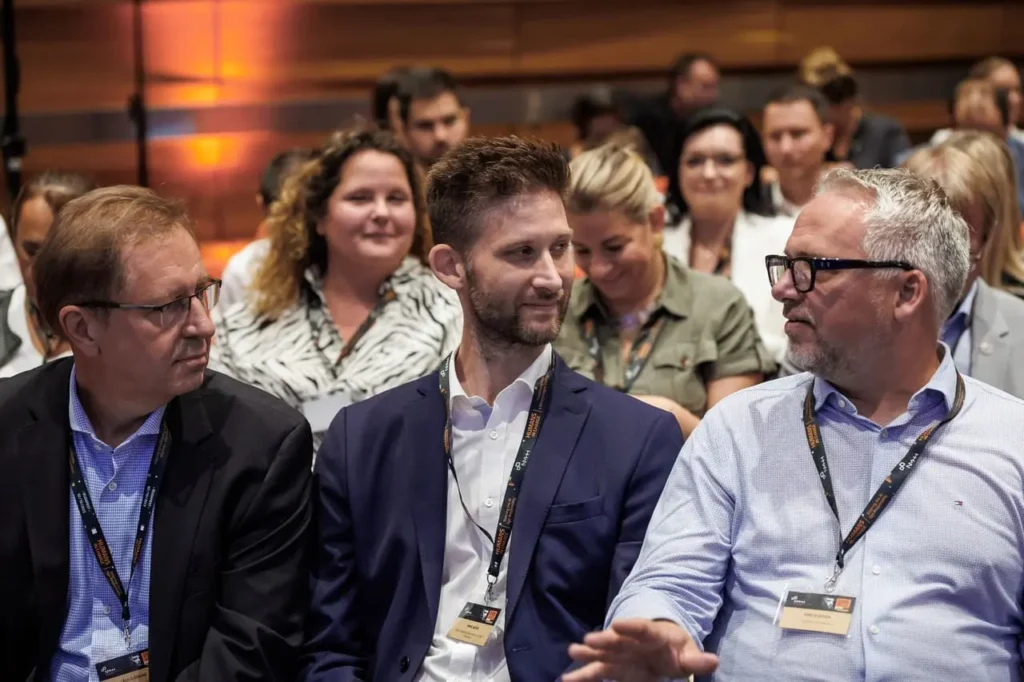Thirteen experts talk about the responsible use of AI in Budapest
On 2 October, the National Media and Infocommunications Authority (NMHH) hosted an international conference on the regulation of artificial intelligence entitled “Humans in Charge – Steering the AI Age Responsibly”. The conference was prompted by the forthcoming European AI regulation and the recent rapid spread of AI which require all relevant responsible stakeholders to tune up thinking and awareness of the new technology in order to maximise societal benefits.
The NMHH, which has made the responsible use of artificial intelligence a top priority, invited 13 international AI experts to speak at the event for them to
- present the European regulation’s risk-based approach to AI,
- describe the best practices they know of, either from a government or a private sector perspective, and
- draw attention to the challenges of AI as well as related areas, such as the protection of personal data and children, or the ethical use of digital services.
The conference was organised around four major themes, each exploring the potential impact of artificial intelligence from a different point of view.
Responsible AI on digital platforms, in telco and the media
The responsible use of artificial intelligence on digital platforms, in telecommunications and the media was discussed with experts from several globally recognised companies (Microsoft, T-Systems).
They, albeit showing how paramount pioneering innovation for these companies was, stressed that artificial intelligence may not be the answer to every problem, and that an ethical approach to product development continued to play an important role.
AI, safety and security
The full title of this topic was "AI, safety and security. AI for the common good and the protection of the next generation".
Assessing the relationship between artificial intelligence, the digital world and children made it clear that while artificial intelligence had many potentials for both individuals and society in the field of education, medicine and individual skills development, its negative impacts, such as significantly less human interaction among children or the unknown dangers of the digital space should not be ignored.
In order to protect children, UNICEF (the UN’s Children’s Fund) has launched the initiative “AI for Children” to guide governments in addressing children’s needs.
AI regulation, ethics and governance
In their analyses of the regulation of artificial intelligence, the speakers stressed that it was not necessary for each country to come up with a regulation built on their own set of principles as the European Union’s risk-based approach provided a sound basis.
It all lies in the details and is a matter of implementation.
Here, what matters is not whether a state will set up a single dedicated artificial intelligence authority or a decentralised system with several specialised agencies, but rather the existence and appropriate use of a wide range of expertise (technical, scientific, machine learning and artificial intelligence).
AI in society and public services
The discussion on the use of artificial intelligence in societies and public services pointed out that, although the public sector had a key role to play in the regulation of the artificial intelligence, in the simplest terms, it all boiled down to a difficult choice between three options.
The difference between each outcome depends on how much we entrust artificial intelligence with the delivery of public services. In the first case, government merely regulates the artificial intelligence.
In the second case, it uses artificial intelligence for governance in such a way that humans retain full control over the technologies.
And in the third case, human decision-makers surrender complete control to artificial intelligence.
In addition to an enquiry into ethical dilemmas, a number of yet unknown consequences may arise when making this choice, so the real power of artificial intelligence in the public sector is expected to be harnessed step by step.
The conference provided valuable experience, actionable knowledge and successful examples to follow for the nearly 200 attendees who included top AI academics, the representatives, lawyers and researchers of leading media and communications companies, as well as the representatives of domestic public institutions interested in the potential deployment and use of artificial intelligence.
Although this was the first such conference organised by the National Media and Infocommunications Authority of Hungary, strong interest in the event and positive feedback suggest that it may well not be the last.


